Incorporating GDMT and PRO Endpoints for Personalised Heart Failure Management
Published: 23 March 2023
-
Views:
 3782
3782
-
Likes:
 7
7
-
Views:
 3782
3782
-
Likes:
 7
7
-
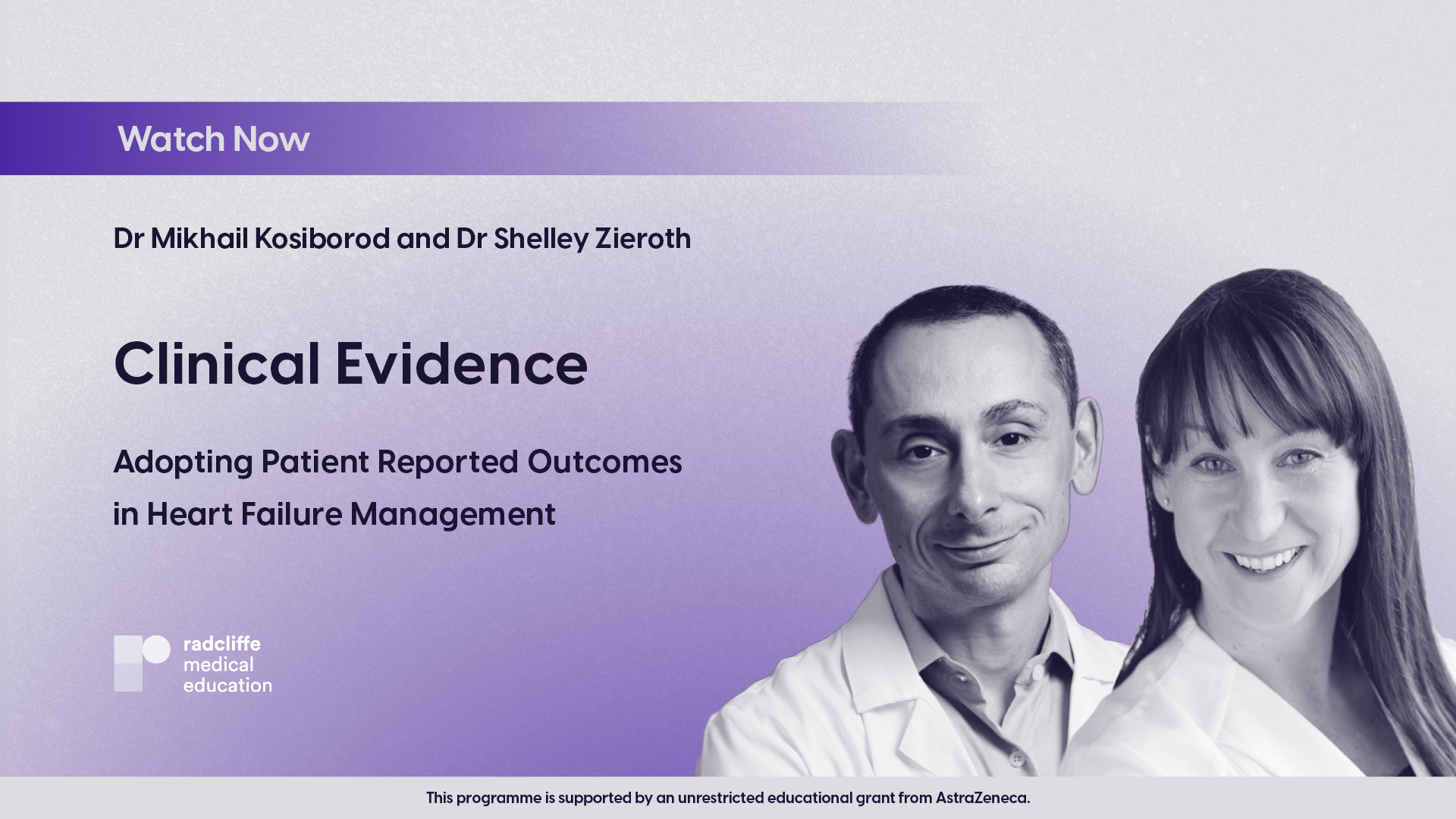 Up Next
Up Next -
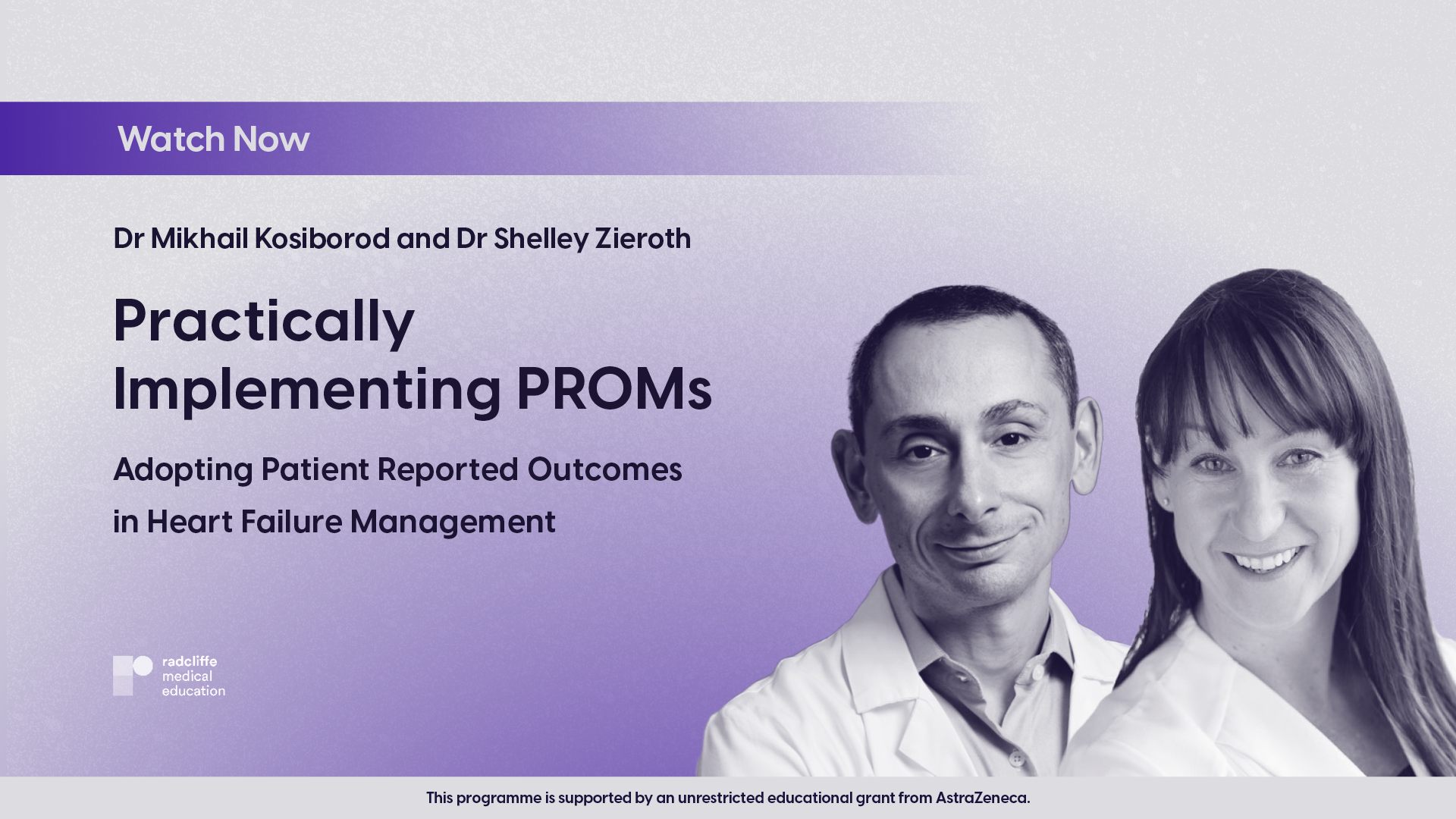 5m 25sPart 3 | Session 3 Practically Implementing PROMs
5m 25sPart 3 | Session 3 Practically Implementing PROMs
-
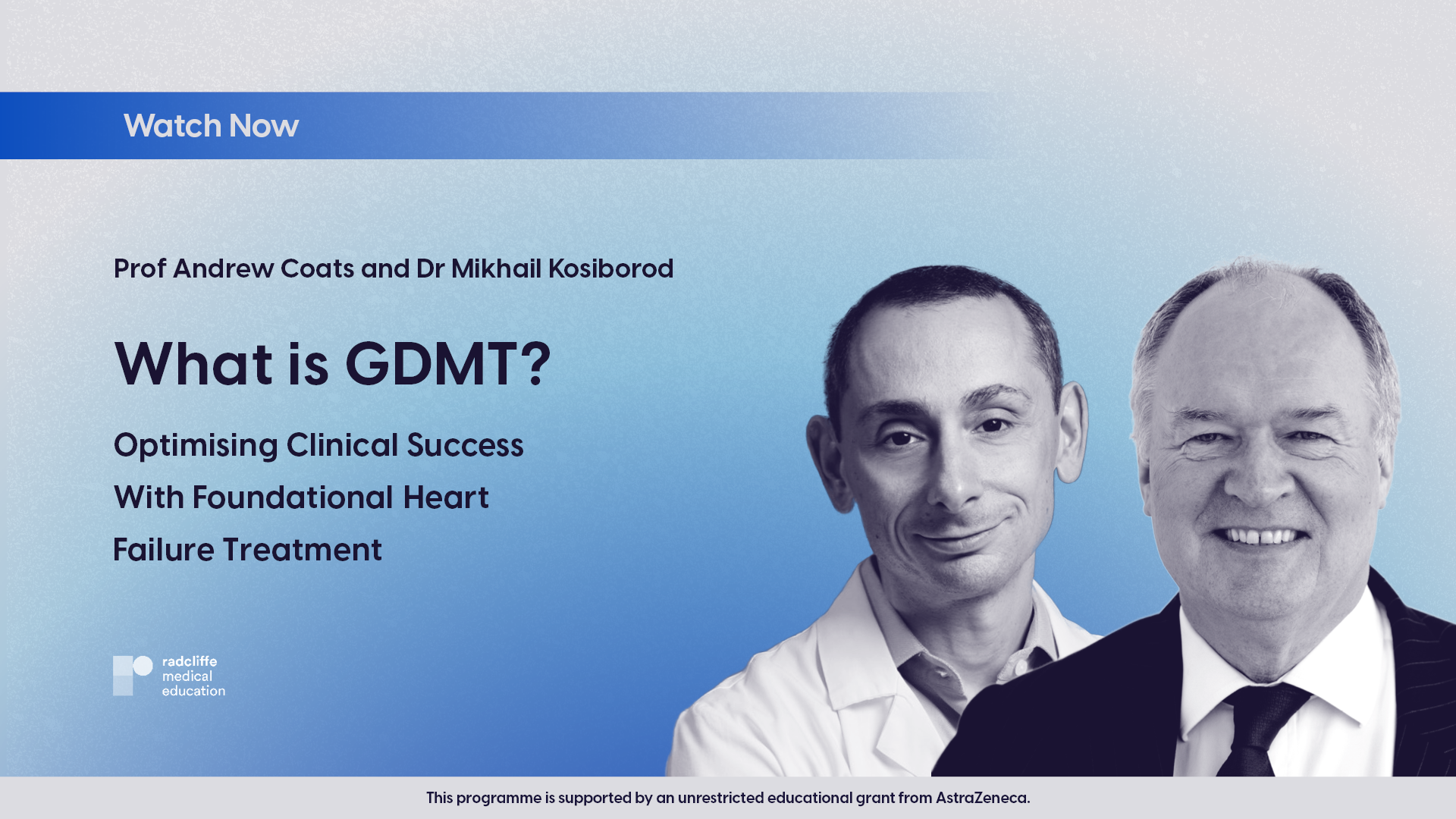 6m 1sPart 1 | Session 1 What is GDMT? Andrew JS Coats, Mikhail Kosiborod, Biykem Bozkurt, Giuseppe Rosano, Shelley Zieroth
6m 1sPart 1 | Session 1 What is GDMT? Andrew JS Coats, Mikhail Kosiborod, Biykem Bozkurt, Giuseppe Rosano, Shelley Zieroth
-
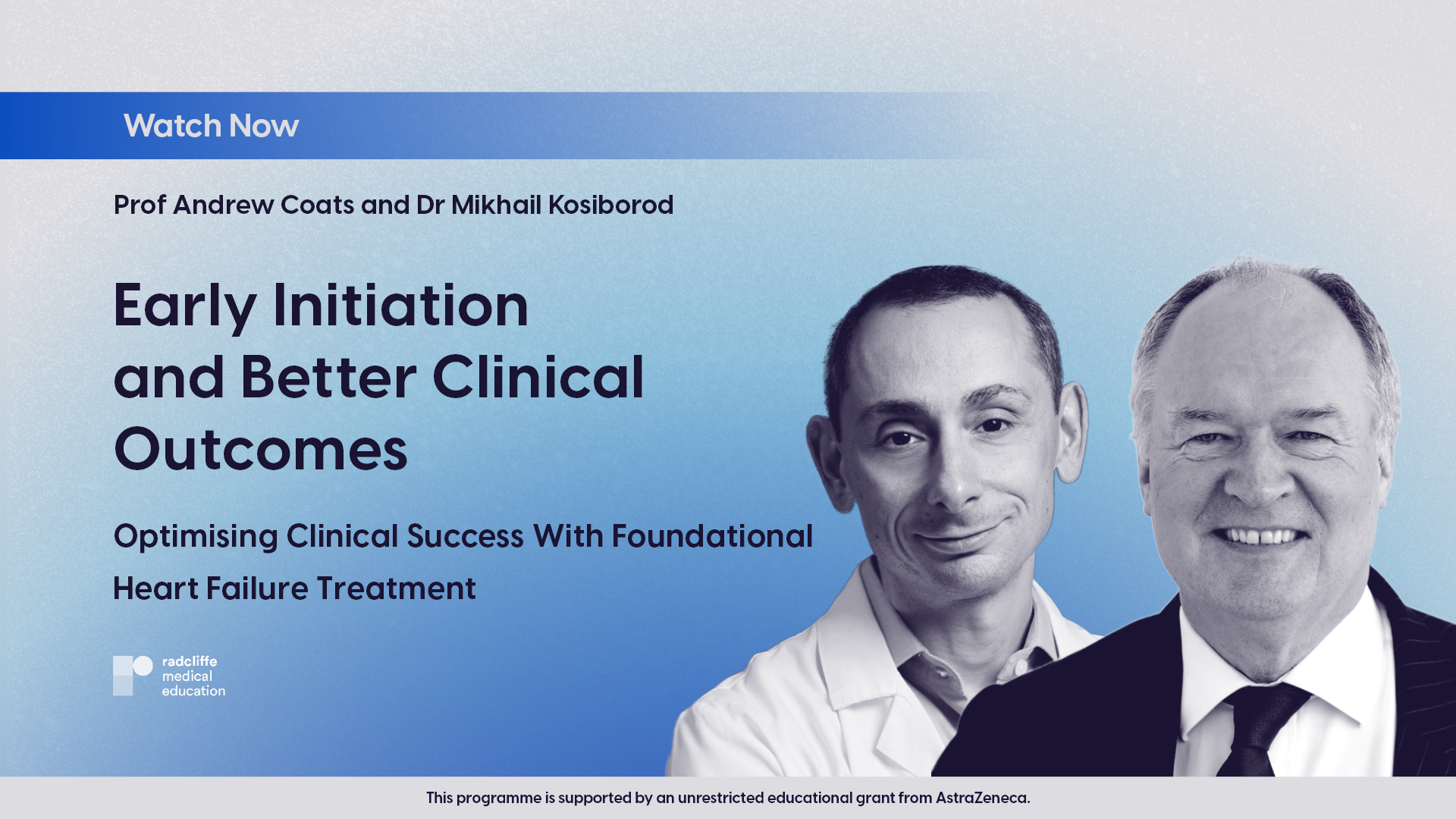 6m 31sPart 1 | Session 2 Early Initiation and Better Clinical Outcomes Andrew JS Coats, Mikhail Kosiborod
6m 31sPart 1 | Session 2 Early Initiation and Better Clinical Outcomes Andrew JS Coats, Mikhail Kosiborod
-
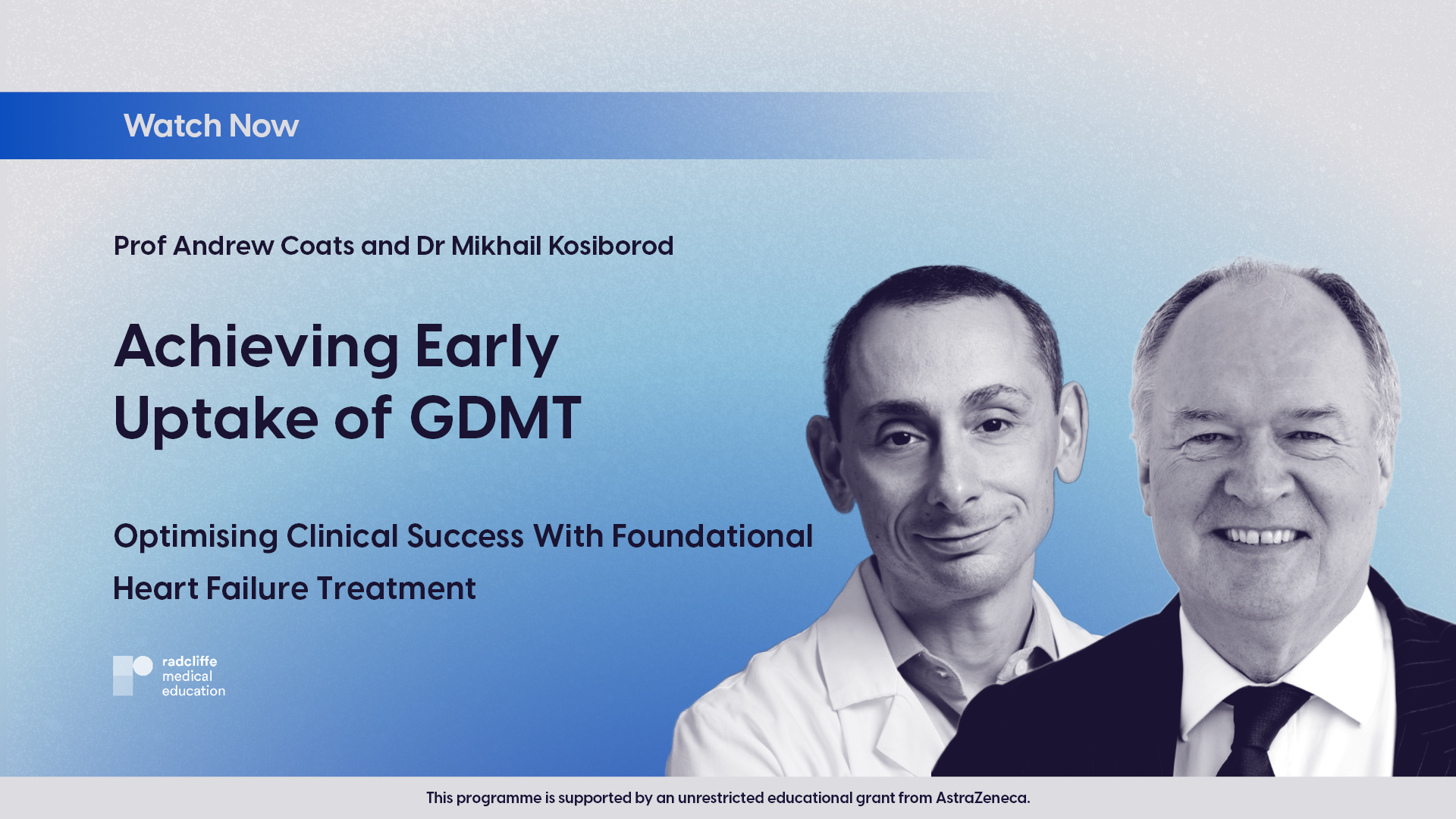 4m 59sPart 1 | Session 3 Achieving Early Uptake of GDMT Andrew JS Coats, Mikhail Kosiborod
4m 59sPart 1 | Session 3 Achieving Early Uptake of GDMT Andrew JS Coats, Mikhail Kosiborod
-
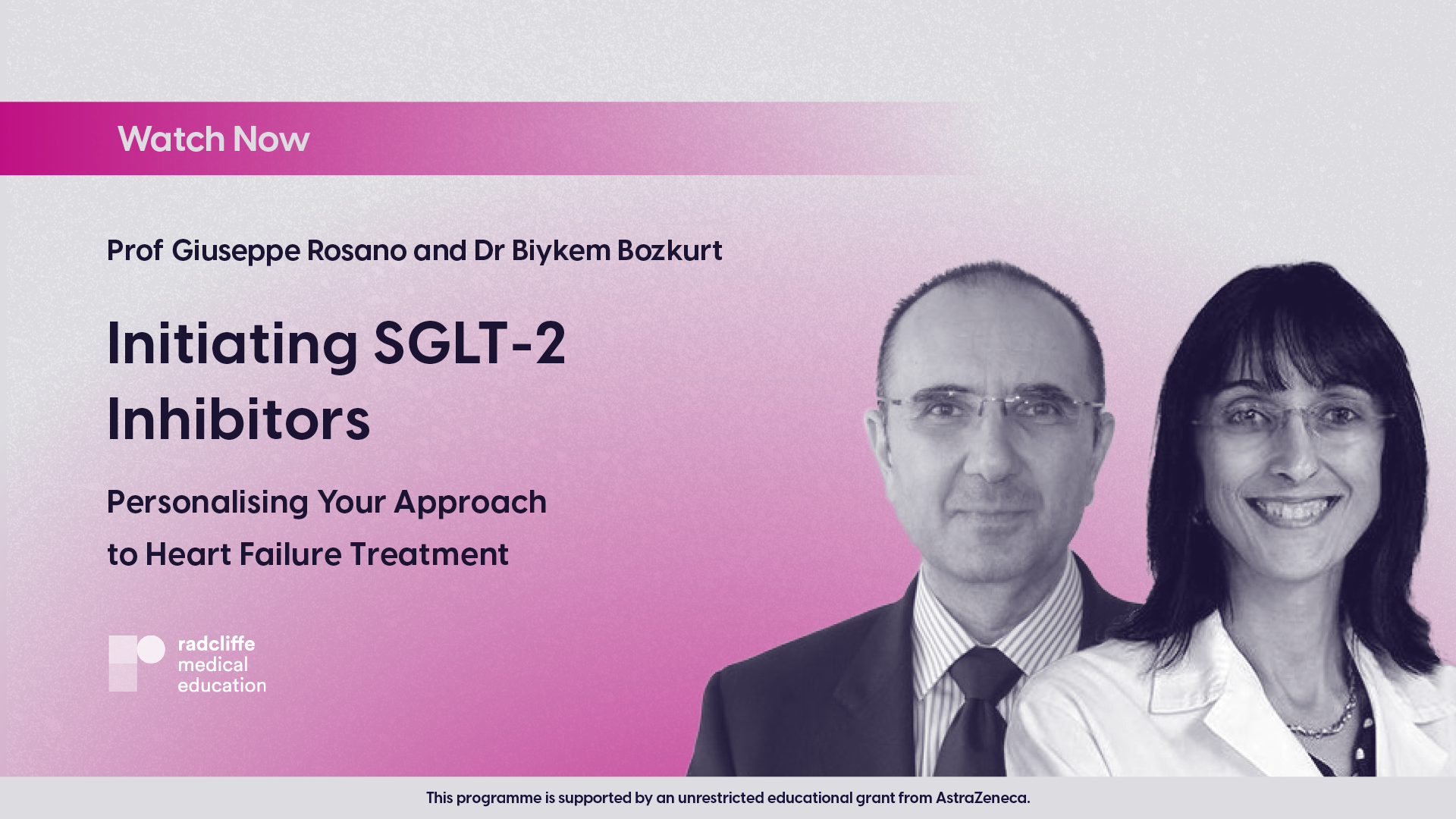 6m 24sPart 2 | Session 1 Initiating SGLT-2 Inhibitors Giuseppe Rosano, Biykem Bozkurt
6m 24sPart 2 | Session 1 Initiating SGLT-2 Inhibitors Giuseppe Rosano, Biykem Bozkurt
-
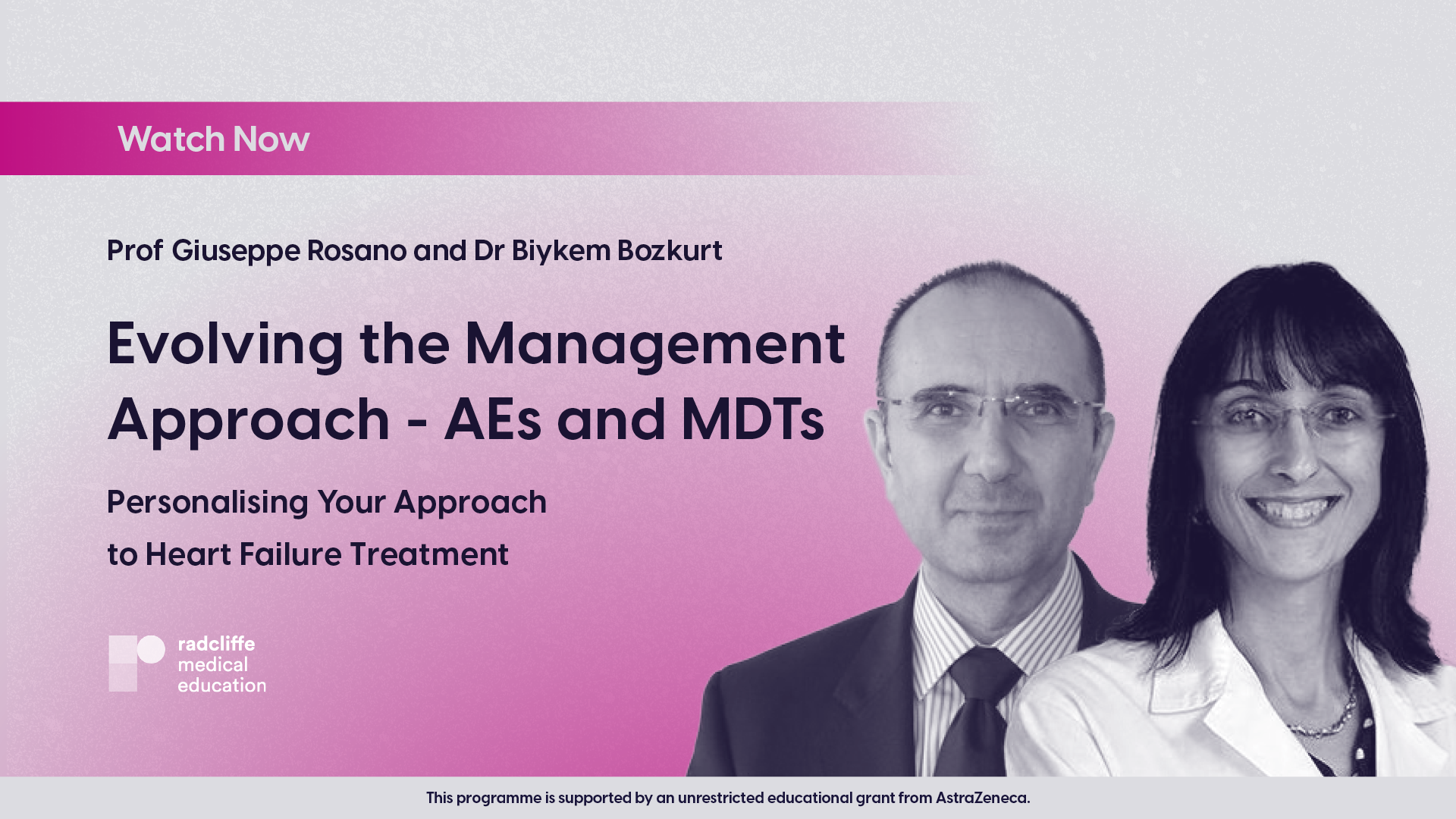 6m 49sPart 2 | Session 2 Evolving the Management Approach - AEs and MDTs Giuseppe Rosano, Biykem Bozkurt
6m 49sPart 2 | Session 2 Evolving the Management Approach - AEs and MDTs Giuseppe Rosano, Biykem Bozkurt
-
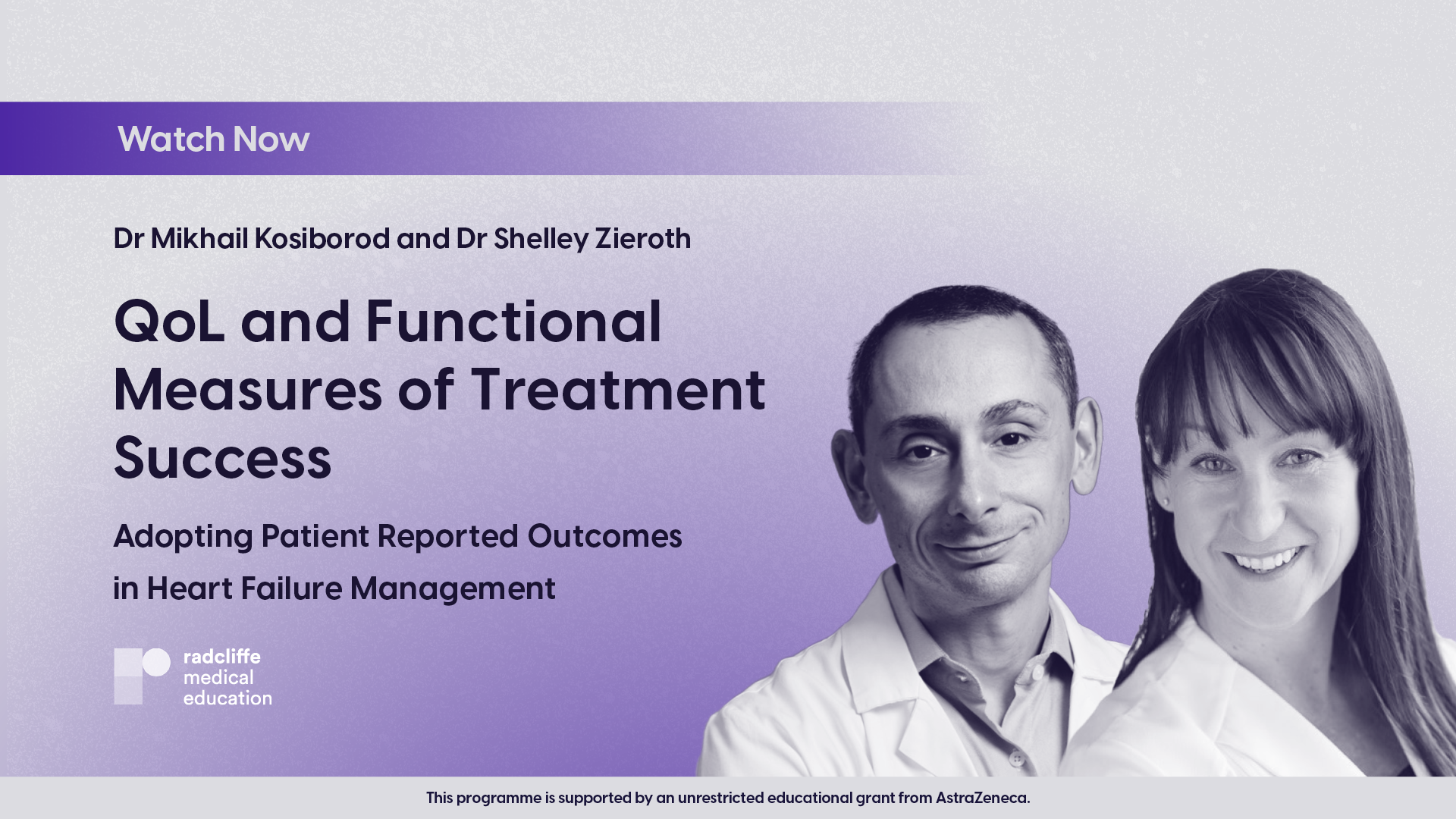 6m 23sPart 3 | Session 1 QoL and Functional Measures of Treatment Success Mikhail Kosiborod, Shelley Zieroth
6m 23sPart 3 | Session 1 QoL and Functional Measures of Treatment Success Mikhail Kosiborod, Shelley Zieroth
Overview
This series of peer-to-peer discussions examines the practicalities of personalising heart failure management in the context of recent changes to international clinical practice guidelines.
At this exciting juncture, we now have two SGLT-2 inhibitors that offer clinical benefit across the spectrum of ejection fraction, and an increasing body of real-world and registry-based data showing the clear benefit of early guideline directed medical therapy (GDMT) adoption. Further, there is a clear move towards the use of patient reported outcomes (PROs) in addition to clinical endpoints. But how can we start to incorporate these changes in current practice?
In this series, our specially selected faculty of experts consider how we can be using these recent developments to personalise our management approach to heart failure and why it matters for better long-term patient outcomes.
Key Learning Objectives
- Review current GDMT in HFrEF and HFpEF
- Describe the relationship between initiation of GDMT and HF outcomes
- Prescribe GDMT according to current international recommendations
- Recall the elements of the Kansas City Cardiomyopathy Questionnaire
- Describe the clinical studies that support the use of functional and QoL measures in practice
- Initiate QoL and functional improvement measures in routine practice
- Initiate SGLT-2 inhibitors in patients presenting with De novo HF and in patients already on other GDMT
- Adopt shared decision making with HF patients
Target Audience
- Cardiologists
- Heart Failure Specialists
- Primary Care Physicians
- Nurses
- Pharmacists
- Other allied HCPs
More from this programme
Part 1
Optimising Clinical Success With Foundational Heart Failure Treatment
Prof Coats (Heart Research Institute, Sydney, AU) and Dr Kosiborod (Saint Luke’s Mid America Heart Institute, Kansas City, US) start by summarising current foundational heart failure therapy and how guidance has recently changed across the spectrum of ejection fraction. Following this, they explore recent evidence supporting initiation of GDMT and offer practical advice for the implementation of treatment, including possible solutions to the early uptake of GDMT.
Part 2
Personalising Your Approach to Heart Failure Treatment
Prof Rosano (St George’s University Hospital, University of London, UK) and Dr Bozkurt (Baylor College of Medicine, Texas, US) begin by discussing how one should be initiating SGLT-2 inhibitors across the continuum of ejection fraction and across patients who are treatment naïve versus those already on existing HF medications. Referring to the recent clinical practice guidelines, Dr Bozkurt advocates the early initiation of SGLT-2 inhibitors and goes on to provide practical advice on the monitoring and continual use of these agents for better long-term outcomes.
Part 3
Adopting Patient Reported Outcomes in Heart Failure Management
Dr Kosiborod (Saint Luke’s Mid America Heart Institute, US) and Dr Zieroth (St Boniface Hospital, Winnipeg, CA) discuss the adoption of PROs in clinical management of patients with HF. They start by discussing quality of life (QoL) measures and close by looking at practical implementation of tools, such as the Kansas City Cardiomyopathy Questionnaire (KCCQ), in clinical practice and HF management.
Faculty Biographies

Mikhail Kosiborod
Cardiologist
Dr Mikhail Kosiborod is a cardiologist, the Vice President of Research at Saint Luke's Health System, and Professor of Medicine at the University of Missouri-Kansas City, US.
He is also Director of Cardiometabolic Research and Co-Director of the Saint Luke’s Michael & Marlys Haverty Cardiometabolic Center of Excellence at Saint Luke's Mid America Heart Institute. Dr Kosiborod is an internationally-recognised expert in the fields of diabetes and cardiovascular disease, cardiometabolic and cardiorenal syndromes.
Dr Kosiborod is involved in the leadership of numerous clinical trials and multi-center registries, and is currently the principal investigator of several investigator-initiated, multi-center trials in diabetes and cardiovascular disease.

Shelley Zieroth
Director, Heart Failure and Heart Transplant Clinics
Dr Shelley Zieroth is Professor at the College of Medicine, Max Rady Faculty of Health Sciences, University of Manitoba, as well as Director of the Heart Failure and Heart Transplant Clinics at St Boniface Hospital in Winnipeg, Canada. She is also Head of the Medical Heart Failure Program for Cardiac Sciences Manitoba.
She is involved in several heart failure clinical trials as a PI, National Lead or Executive Committee member. She is the Past President of the Canadian Heart Failure Society and Co-Chair of the Canadian Cardiovascular Society Heart Failure Guidelines. She is co-chair of Canada’s largest annual heart failure meeting, HF Update, and Past President of the Federation of Medical Women of Canada.
Dr Shelley Zieroth is an Editorial Board member of Cardiac Failure Review.





